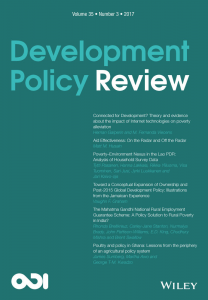Offshoring and Forgetting – the dark side of Globalisation

By VerTego at en.wikipedia (Transferred from en.wikipedia) [Public domain], via Wikimedia Commons
So what happened there? Are we so used to the 1% taking advantage of us that it’s no longer news-worthy? Are we becoming so ADHD as media-consumers that journalists have to give us a fresh fix of hate and outrage every few days? Or, as Charlie Brooker argues, are financial news stories just a bit dull?
“it’s no fun hating HSBC, everything about it is boring, its name is boring, its function is boring, Switzerland’s boring, there’s no palpable visual villain for you to get a mental foothold on, just that building, which is…boring.”

HSBC’s boring HQ Building. By Gordon Joly (Own work) [GFDL (http://www.gnu.org/copyleft/fdl.html) or CC-BY-SA-3.0 (http://creativecommons.org/licenses/by-sa/3.0/)], via Wikimedia Commons
Offshoring, as described in Urry’s 2014 book of the same name, is the dark side of globalisation, the side that we don’t see because certain elites don’t want us to, or because we choose not to. It’s not just about offshore bank accounts, many things are offshored. As well as untaxed wealth hidden in Switzerland, Vanuatu or the Cook Islands, hazardous waste is shipped off to India and Africa; illicit pleasures, like in China’s cross-border gambling havens on the Mekong or child prostitution zones in Phnom Penh, are kept out of sight; terror suspects are rendered and tortured in Guantanamo or Diego Garcia where different laws apply; ‘bad work’ is outsourced away from the old industrial powerhouses of Detroit or Manchester to Primark sweatshops in Dhaka and iPad factories in Shenzhen.
Globalisation wasn’t supposed to look like this. In 1991, Kenichi Ohmae wrote of a coming “borderless world” with a “free flow of ideas, individuals, investments and industries”, but that was perhaps wishful thinking, as was much talk of global ‘cosmopolitan citizenship’ – a new, more egalitarian world of transnational work, travel and leisure to be enjoyed by the many. But in reality, it isn’t the many that enjoy the fruits of globalisation. As Andy Dobson describes it, there are globalis-ing and globalised citizens, and in a global context, we are not equal in terms of our economic and environmental capacities and responsibilities. Far from it.
It’s not just the 1% that are part of this. As globalising citizens, we are also globalising consumers, importing cheap products from the developing world and then, when we’re bored with them, exporting them back as trash. Thanks to our throwaway culture, the average Briton creates 21kg of ‘e-waste’ every year – that’s waste created by the ‘old’ phones, laptops, tablets, TVs and washing machines which are disposed of, to be replaced by a shinier model. In the USA, the figure is 29.5kg, in China it’s only 5kg (according to figures from the United Nations’ Step Initiative).
A lot of e-waste is reclaimable, but as recycling it is complex and costly, a lot of it is illegally re-classified as ‘second-hand goods’ (even though it is unusable) and shipped off to places like Accra in Ghana, home of Agbogbloshie, the world’s largest e-waste dumping site. This is where our Christmas presents from two years ago end up, in the hands of informal workers who try to reclaim precious metals from electronic devices, without proper equipment or training. Photographer Kevin McElvaney went to Agbogbloshie for the Guardian and described the hellish scenes there:
“Boys and young men smash devices to get to the metals, especially copper. Injuries, such as burns, untreated wounds, eye damage, lung and back problems, go hand in hand with chronic nausea, anorexia, debilitating headaches and respiratory problems. Most workers die from cancer in their 20s.”

Agbogbloshie, Accra, Ghana By Marlenenapoli (Own work) [CC0], via Wikimedia Commons
Dobson, Andy (2003) Citizenship and the Environment. Oxford University Press
Ohmae, Kenichie (1991) The Borderless World: Power and Strategy in the Interlinked Economy. Fontana
Urry, John (2014) Offshoring. Polity
[youtube]https://www.youtube.com/watch?v=CChAOh1X5CA[/youtube]






1 Response
[…] Offshoring and Forgetting – the dark side of Globalisation […]